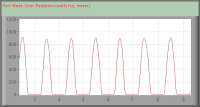HeroicStories is a free mailing list and web site whose motto is "Restoring faith in humanity, one story at a time..." I've subscribed to it from near it's inception. Click on the link above and add yourself; you'll thank me for it.
Each time the latest edition arrives in my inbox, I get a little frisson of good feelings, knowing that I'm about to read another story about my fellow humans behaving in an admirable way. Don't seem to get enough of that from the usual news sources.
Edition #632 just hit my inbox, and (as expected) it delivered another uplifting story. This time it was about the aftermath of Hurricane Katrina. An excerpt:
In a really rough neighborhood, we came across five seemingly unsavory characters, one with gunshot wound scars. We found them at a recreational center, one of the few two-story buildings around. They broke into the center, then gathered as many people as possible from the neighborhood.
They stayed outside in the center all day, helping people into rescue boats. We approached them at 6:30 p.m., obviously one of the last trips of the day. Yet instead of getting in our boat, they sent us further into the neighborhood to get more people out of homes and off rooftops.
These five were on the last boat out at sundown. They were incredibly grateful, repeating "God is going to bless y'all for this". One even offered us his Allen Iverson jersey, perhaps the most valuable possession among them. We declined, but understood the depth of his gesture.
HeroicStories was founded by the talented Randy Cassingham (of ThisIsTrue fame), but is now published by Joyce Schowalter, who's carrying on the tradition most excellently.



